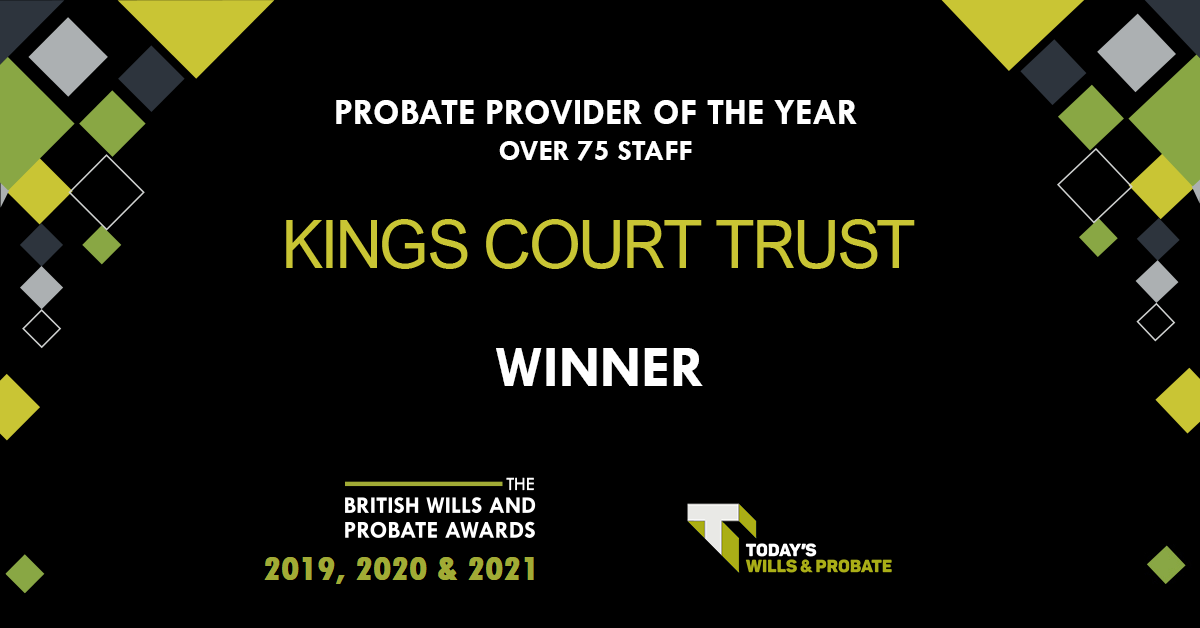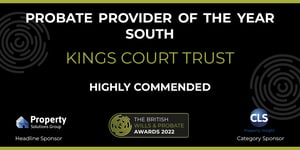As consumers, we are forever looking for a bargain – perhaps especially these days - and the world of estate administration is no exception. Some people are capable of administering a deceased parent’s, or spouse's, estate without professional assistance – although anyone contemplating this should be alive to the pitfalls that await the unwary - the cost of probate provided by a professional is often small in relation to the stress created, and time needed, in even a simple case. In this article I will show, based on my experience, some of the things you will need to be aware of, should you decide to administer an estate yourself.
First things first
The fundamental point for any would-be probateer is as to whether he or she will need to apply for a grant of probate for the estate administration of the estate in question. If so, thought should be given to the application process. Once the grant is obtained (assuming one is required), the administration proper can begin – until then, little can be done.
Obtaining a grant of probate is essentially a paperwork exercise. However, it can cause a headache, especially to the inexperienced. Questions of cost will arise, as well as the time spent in applying for the grant. What will the executors have to do? What is the risk to them? The executors (or, if not the executors, whoever is applying for the grant) will have accurately to assess the composition of the estate – what are the assets? What are their value? The liabilities? Is the value of the net estate as at the date of death (i.e. the value of the assets less the value of the liabilities once reliefs and allowances are taken into account) less than or greater than the nil-rate band? If greater, then it will be necessary to open negotiations with HMRC and pay any inheritance tax due.
The executors, or whoever is applying for the grant, are personally liable to HMRC for any inheritance tax, as well as being personally liable to the beneficiaries of the estate. The nature of personal liability is that, should the executors inadvertently under-pay the inheritance tax, or slip up during the administration (whether by mistake or negligence), they will have to make good any losses themselves, without recourse to compensation from the estate.
In my experience, these are some of the issues that arise in the minds of families and executors when considering applying for a grant, and subsequently administering an estate, without professional assistance.
Valuing assets
HMRC has rules about valuing assets for probate purposes. It will not do to make guesses as to the value of works of art or antiques and professional advice should be sought. Ditto as regards valuing stocks and shares – HMRC allows stocks and shares to be valued on the basis of either or both of two subtly different regimes and executors may use whichever provides the more favourable outcome (i.e. the lower price) for inheritance tax calculation purposes. Was the date of death at a weekend or public holiday? If so, which stock market trading day should be taken as the date of death? There are rules about this too.
What sort of furniture did the deceased own? Good solid pieces are likely to have a value beyond the nominal (have you seen the price of vintage Ercol sofas and G-Plan sideboards on eBay?) although you might have pay someone to take modern flat-pack stuff away. Older soft furnishings should be checked for compliance with fire-retardant foam requirements – if they don’t comply, the value (if any) is likely to be lower than if it does. Second hand white goods are unlikely to have much value. As to a car: there are second hand cars and then there are second hand cars – is the vehicle a clapped-out smoker or a classic in waiting?
What about the deceased’s home? Is any planning permission for development of the land being sought? If such an application is successful, this could materially affect the land’s value.
Once all the deceased’s assets have been correctly valued and the liabilities quantified, the application can be made – although, if inheritance tax is payable this will have to be paid to HMRC and a receipt obtained, before the probate registry will entertain the application.
So we’ve looked briefly at the issues surrounding valuation of assets – perhaps, for the sake of readers’ nerves, we should shy away from a detailed look at how to complete HMRC’s inheritance tax returns… however, remember always that it is an offence to under-declare the value of assets when completing inheritance tax returns.
All things being equal, you should normally be able to apply for a grant of probate within three months of the date of death. Once the grant arrives, you can collect all the deceased's assets and settle all their liabilities. What about the cost of probate?
Keeping your options open
In my experience, people will often consider applying for a grant and administering the estate themselves as a means of saving money on probate fees. It is also my experience that people will sometimes change their minds and hand the matter over to a suitable professional service provider – usually as a result of getting stuck, or finding that the money saved by taking the DIY approach is simply not worth the risk and hassle. It is a brave amateur who will take on the rigours of trusts, estates containing businesses and / or overseas assets and / or partial (or full) intestacies. My advice is to assess the risk before you get started and get stuck.
The DIY approach to obtaining Probate and estate administration can work for straightforward cases, and the members of the family who are making the application have the time to do the work and attend the Court. There are a number of resources that the DIY executor can use to help obtain a grant:
- Government resources have become more user friendly. See for example HMRC’s inheritance tax and probate helpline and the Court Service website where you can download the necessary probate forms http://www.hmrc.gov.uk
- www.directgov.co.uk is the official UK website for public services offers good, structured information on what you need to do to apply for Probate.
- Search engines can refer you to specialist websites that will handle your enquiry - you’ll need to give a brief explanation of your case and the law site will refer a law firm to you - the cost of probate on these sites can vary enormously.
- Specialist sites offering more focused help in completing probate and tax forms. There will usually be a small fee to pay for these services. For example Kings Court’s tiered range of Probate Assist services enables the consumer to choose the desired service level at the appropriate price. If the administration of the estate turns out to be more complex than anticipated, the consumer can go up to the next appropriate service tier.
An example of a good candidate for a Probate Assist approach might be a very straightforward estate where the deceased is the first of a pair of spouses (read also: registered civil partners) to die. The home is held by the spouses as joint tenants and passes to the survivor accordingly.
The only asset that requires a grant of probate is an ISA with at least, say £16,000, in the deceased’s sole name and the organisation holding the money will not release it without sight of a grant. The grant is proof that the person named in it has the authority to collect the money. In a case like this, the modest fixed-fee cost associated with obtaining the grant will put the executors firmly in the driving seat and enable the DIY administration of a very straightforward estate. Best advice is to think carefully before taking on anything more complex oneself.
Conclusion
The risks of taking on the administration of anything beyond a straightforward estate oneself are considerable. However, it is not always necessary to instruct a professional to handle every aspect – though, as we have seen, obtaining the grant can be tricky. A professional will be able to help, preferably at a fixed cost, and, in the unlikely event of a foul-up, will have the necessary professional indemnity insurance in place to cover any losses arising.
Paul Winterflood is Regional Sales Manager at Kings Court Trust. You can reach him on 01225 787131 or at paul.winterflood@kctrust.co.uk.





%20A4%20PNG.png?width=89&height=118&name=AGFD%20Logo%20%2B%20(R)%20A4%20PNG.png)

